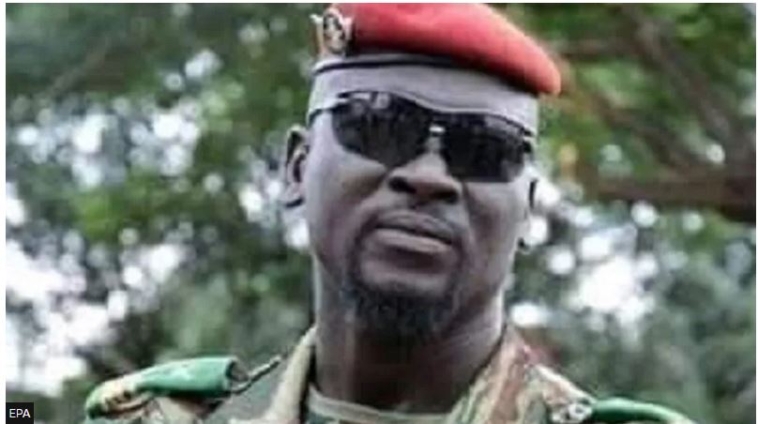Guinea's military junta has protested to Russia's ambassador after his embassy reportedly warned of possible unrest in the capital, Conakry.
The warning was issued after junta leader Colonel Mamady Doumbouya dissolved the government on Monday, and ordered the closure of all borders.
Ambassador Alexey Popov apologised to the junta for what he called a misunderstanding, Guinean media reported.
Col Doumbouya took power in a 2021 coup.
He dissolved his government on Monday without offering any explanation.
He also ordered the seizure of the passports of sacked ministers, and the freezing of their bank accounts.
Guinean media reported that Col Doumbouya's decision led to the Russian embassy in Guinea advising Russian nationals to be vigilant as there could be unrest in the West African state's capital, Conakry.
The junta reacted angrily, with an official in its foreign ministry summoning Mr Popov to a meeting.
"I explained that it was a misunderstanding, a false translation of what was published. The announcement was published only in Russian for Russian citizens," Mr Popov was quoted as saying by Guinea's state-owned television and radio.
The junta accepted the apology, while Mr Popov said the incident would not affect relations between the two nations.
Guinea is one of several former French colonies in West Africa to be hit by coups in recent years.
The juntas, which seized power in Mali, Niger and Burkina Faso have pivoted toward Russia, while being hostile towards France and the West African regional bloc, Ecowas.
However, Col Doumbouya has tried to maintain good relations with all sides.
He has promised to hold elections to restore democratic rule by the end of 2024.
The junta banned all demonstrations in 2022 and has detained several opposition leaders, and members of civil society groups.
Col Doumbouya overthrew President Alpha Condé in September 2021, saying the army had little choice but to seize power because of rampant corruption, disregard for human rights and economic mismanagement.
Mr Condé was Guinea's first democratically elected president, taking office in 2010 following the end of military rule.
He was re-elected in 2015, but faced protests four years later when he changed the constitution to run for a third term.
Latest Stories
-
Opoku Agyemang’s private jet use: Be a man of principle and resign – Ntim Fordjour to Ablakwa
12 minutes -
NPP’s Adenta Kumi released from NIB custody
46 minutes -
Surviving and Growing in Turbulent Times: The Strategic Role of Marketing
56 minutes -
McTominay stunner helps Napoli win Serie A title
58 minutes -
360 Africa and Ebenezer SHS unite in Dansoman to promote ‘Renewable Energy for All’
1 hour -
Old age inspired me to establish a hotel – KSM
1 hour -
Newsfile to discuss suspended CJ’s legal battle and Accra flood crisis this Saturday
2 hours -
Gifty Anti inspires young women to rise above challenges at TAF College’s 2025 Freelancers launch
2 hours -
Police restore calm in Adoagyiri after violent clashes between youth groups
3 hours -
Obstructionist behaviour must not be tolerated – Prof Kwesi Aning warns
3 hours -
Wontumi alleges intimidation and threats amid raid at his residence
3 hours -
GREDA urges pricing discipline as cedi strengthens against dollar
3 hours -
Ghana scales up fight against obstetric fistula with free surgeries in five hospitals
3 hours -
“We step in when communities need us” – Agro Crown Director on borehole commissioning in Ofosu
3 hours -
NUGS launches National Youth Festival 2025 with strong stakeholder support
3 hours

